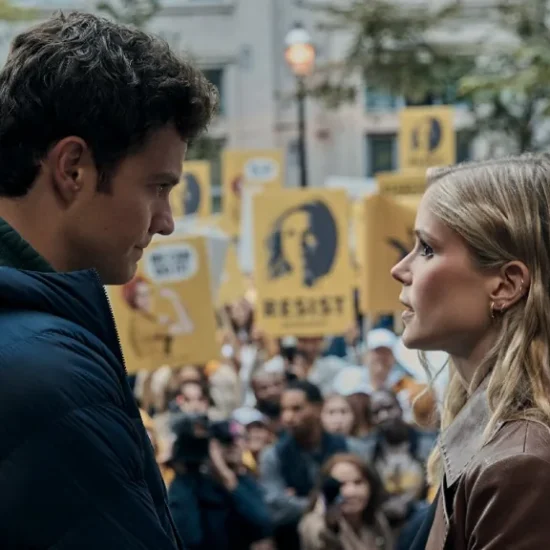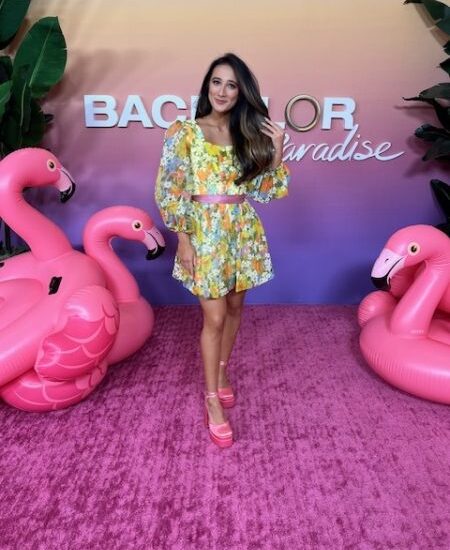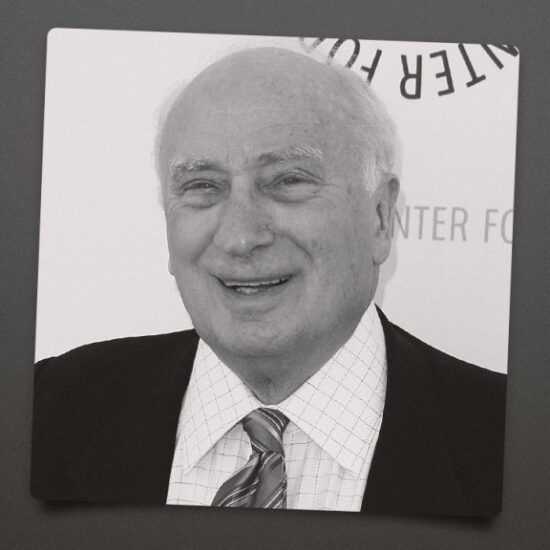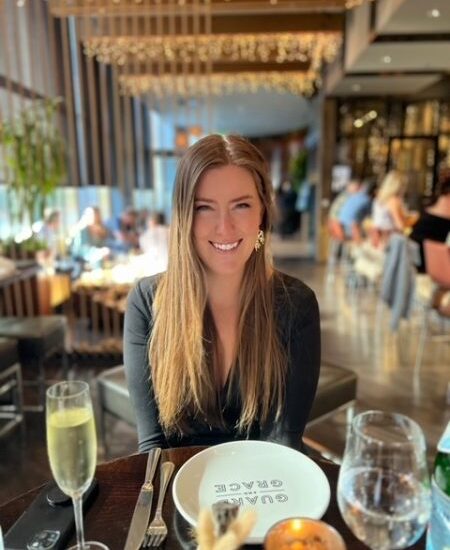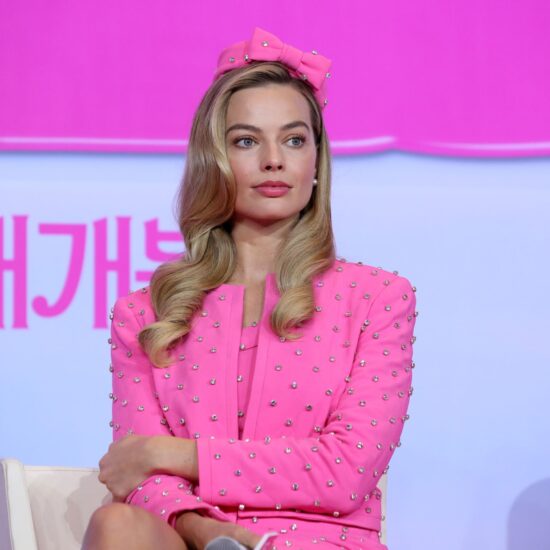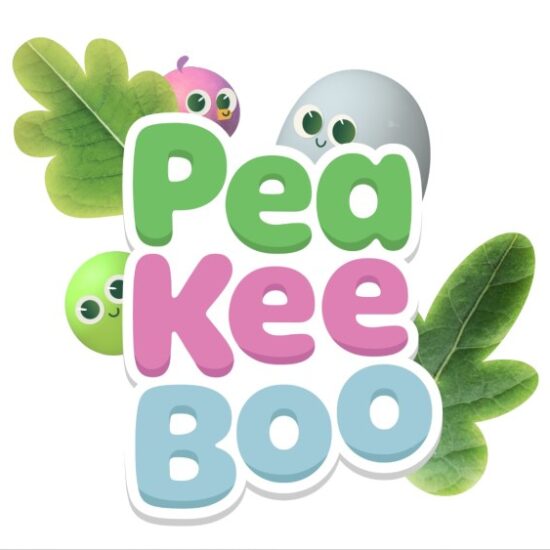
Bruna Papandrea is very good at producing hit movies and TV shows about complex women. She tells IndieWire what she wants next: Marvel, more genres, and refusing to be boxed in.
Loving books by and about women has created an extraordinary career for producer Bruna Papandrea, one that includes “Wild,” “Gone Girl,” the Emmy-winning “Big Little Lies,” “The Nightingale,” “The Dry,” “The Undoing,” and “Roar.” Her production company, Made Up Stories, just opened a UK outpost run by Sarah Harvey, which joins offices in Los Angeles and Sydney, in her native Australia.
What none of those offices have, she told IndieWire, are book scouts. Had she used scouts, she said, “I probably would’ve missed ‘Wild’ because [the report] would’ve said, ‘a woman hikes 1,200 miles after the death of the mother’ and I don’t think I would’ve read it.”
Papandrea’s latest production is the long-gestating “Luckiest Girl Alive,” the Netflix adaptation of Jessica Knoll’s bestselling novel of the same name. It stars Mila Kunis as the eponymous “girl,” now the adult survivor of a high school shooting who’s tried to build an unimpeachable life, only to find it all threatened by secrets and lies.
She’s also finishing the second season of Peacock series “Wolf Like Me” starring Isla Fisher and Josh Gad, plus wrapping production on “Forces of Nature,” a sequel to the Eric Bana-starring Aussie drama “The Dry.” After that it’s Amazon series “The Lost Flowers of Alice Hart,” which is pure Papandrea: Starring Sigourney Weaver, it’s an epic adaptation of the 2018 debut by Australian novelist Holly Ringland.
Ahead, Papandrea unpacks her producing philosophy, shares what gives her hope and enrages her about Hollywood, her dedication to female-driven stories, and why even she’s eager for a Marvel gig.
The interview has been edited and condensed for clarity.
IndieWire: When you are reading, is there a little little bulb that goes off, “I think this will be a good adaptation”?
Yeah, it is exactly that. This book [“Luckiest Girl Alive”] is a great example of that, because it is seven years in the making. This is probably one of the longest projects I’ve ever had. This one is so satisfying for me, because we just didn’t give up on it. It’s quite a hard one to pin down, because it is an incredibly commercial book in lots of ways, but obviously it delves into some very complex things.
I remember distinctly back when I read it seven or eight years ago, I remember loving it so much. I remember being conscious of some of the complex issues, but the biggest thing I remember is I couldn’t stop thinking about it. Everyone was talking about it, and women particularly. Yes, it is a very strong feeling, and that thing of not being able to let go is the thing that I listen to. Sometimes it’s really fast and it’s an obvious thing.
I’ve never used a book scout. People assume we do because we adapt so many books, but I always say that if I used a scout, I probably would’ve missed some of my favorite things. I probably would’ve missed “Wild,” because [the scout report] would’ve said “a woman hikes 1,200 miles after the death of the mother,” and I don’t think I would’ve read it. It’s all in the execution, it’s all in the uniqueness of the voice.
How have you learned to message some of the tougher challenges to authors, like some of the changes you feel need to be made to adapt a book to the screen?
We try to be really open and keep that discussion open and upfront with novelists. Obviously, in the case of “Luckiest Girl Alive,” Kate Erbland Jessica [Knoll] was the only person that ever touched the script, which was pretty crazy. We did countless, countless drafts, but that one was always a very easy conversation.
With someone like [“Big Little Lies” author] Liane Moriarty, she very much will give her drafts of the scripts and then there might be things that she says, but I think she understands that the form is different and that the requirements, particularly when you are adapting for TV, are different. I’ve also made things where we went too far in the other direction and the novelist read the script and was like, “No.” The case I’m talking about was a very beloved book and we had to course correct, and that was OK. That was actually a big lesson for me and just always reminded to keep that conversation completely open.
Bruna Papandrea
courtesy of Bruna Papandrea
When you are working with filmmakers or showrunners, I assume it’s the same approach?
You hope so! We do a lot of repeat business, so I hope that’s a good sign but, yes. It’s my preference. I still believe in authorship and having as few voices involved in the process as possible. We have gaffers that we do business with over and over again. For us, it is about just wanting to have a good experience with people and hopefully them coming back. If I don’t have a good experience, I don’t want to go back.
How often are you on set during production?
It shifts, depending on what the project is. With “Luckiest Girl Alive,” [producer] Erik Feig and I split it up. It was right in the middle of [the early part of the] pandemic, and so with this one, I think the shoot was eight weeks. I had to quarantine for four weeks away from my two nine-year-olds and then shoot for four.
For two months on the ground, I got half a shoot. It was really important to me in this case to be there, particularly for some of the more sensitive stuff. I feel like I really wanted to be part of that and offer everyone a lot of support. We do have a great group of people that work with us and that have worked with us for a very long time, and it’s also my job to enable them to be on the ground and do their best work. It’s probably the greatest lesson as I’ve gotten older and the business gotten bigger, is learning where you’re needed most.

“Big Little Lies”
Jennifer Clasen/HBO
What challenges have you faced in your desire to tell female-driven stories? What kind of pushback do you get when you say, “I want to do something like this that has these really tough, very real things in them”?
I always like to answer this: I’m really optimistic. Obviously, I’ve had a lot of success at putting complex women on screen, so I never liked to feel like I’m complaining, but it is hard every time. Every single time it is a challenge, because I think there is still this perception that stories with men at the center can have more shades of darkness and complexity. I think there is this perception that a woman [character], if you’re not sure she’s who she is and you can’t put her in a box so to speak, that it is hard to sell because people aren’t comfortable with it. It is a challenge for that reason.
I think what happens, particularly with a female-driven movie like this one and it’s the reason it took so long to get made, was there’s a handful of women [actors] that age [for the lead role] who they would deem valuable enough in our business to get it made. That’s tough. That’s always the conversation to some extent. I find that kind of slightly disheartening, because some of my favorite movies are [the ones] where stars got made.
Speaking of: I’m wearing a sweatshirt for “The Worst Person in the World.”
Yeah, yeah, exactly! I remember seeing that movie last year and thinking it was just such a breath of fresh air. It was, by far, my favorite movie of that year. I think in some ways you can do that. I’m actually able to do that more in Australia in some ways, but there is still an enormous double standard of putting women’s stories at the center. I become a little enraged at times when I see how it is for men.
I’ve got a female war movie I’ve been trying to get made for as about as long as “Luckiest Girl Alive” and it’s about one of the first women killed in active combat. You see them every year: war movies, World War II movies, we have “The Greatest Beer Run Ever” made this year. If I tried to get that movie made with women, I can tell you right now, it would be very difficult.
There is still an enormous double standard, particularly where historical figures are concerned. The movie I’m most excited to see is probably “The Woman King” because I know how hard that path was. I say that, again, as someone who is getting it done, but getting this movie made is really important to me because it really restored my faith in not giving up.

“Gone Girl”
20th Century Fox
What changes have you seen in the industry in recent years that make you feel optimistic?
I saw it at the time when we were making “Wild” and “Gone Girl” and “Big Little Lies.” It was the same year as “Wonder Woman” and “The Handmaid’s Tale,” and I could feel the changes. It does buoy my spirits when I see things like “The Woman King” getting made.
I do feel shifts and I feel that TV has allowed people to take what they perceive as more risks, even though I don’t believe they’re risks. I think it’s what people want to see. We’ve had amazing experiences at a lot of these places, and I always do put it down to the individuals within these places to a certain extent. I do feel like they’re real changemakers within the streamers. [HBO and HBO Max chairman and CEO] Casey Bloys I think is a changemaker. I think [Disney chairman] Dana Walden’s a changemaker.
I am really buoyant about the future. Where I hope I can be more buoyant is with films, because I think we’ve seen such a swing away from more premium adult fare in terms of the cinema experience the last few years. I really hope that has a revival, because I know that’s certainly what I want to see.
What do you think the industry’s next big challenge is?
The next big challenge, I think, is volume. How do we curate it for ourselves, because there’s so much being thrown at us? Just the sheer volume is extraordinary. I think everywhere’s desperate for more infrastructure, so that we can keep making lots of content, but then we need to sustain that.
For me, the challenge is exactly what we were talking about before, which is making sure that we maintain new voices and these domestic businesses globally, that we get to see Spanish-language films, we get to see Norwegian films, we get to see Australian stories told by Australians. That, to me, is the challenge: that we don’t just get bogged down in the volume of content.
What have you not yet done that you’d like to do?
Oh, well, that’s easy! I want to do a big sci-fi, epic series. I want to do big. I want to make what’s my version of a Marvel movie. I really crave that. With everything we do, I learn something new. We just made our first unscripted show, which is coming out in Australia this month. It just uses different parts, it activates different parts of your brain. It’s exciting. You meet new people, you learn how something different’s done.
We optioned a big sci-fi book called “To Sleep in a Sea of Stars” by Christopher Paolini that we’re developing as a TV show. I’m really excited about that, because it’s a big space odyssey and it’s just something I’ve never done, and he’s extraordinary. That, with obviously a woman at the center.
Why isn’t Marvel calling me to make their next movie? My friends joke, “Oh my god, what’s Bruna doing? She’s running the Brunaverse!” For my birthday, they put “The Brunaverse” on the Marvel logo. I should just send that to Kevin, right? Just a little logo. I just turned 50, and you do feel like you’re just getting started. People say that, but it’s true.
“The Luckiest Girl Alive” is now streaming on Netflix.
Sign Up: Stay on top of the latest breaking film and TV news! Sign up for our Email Newsletters here.









